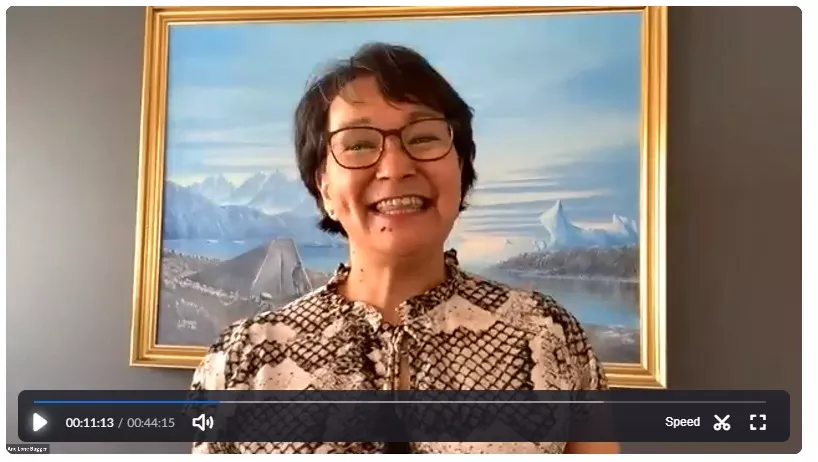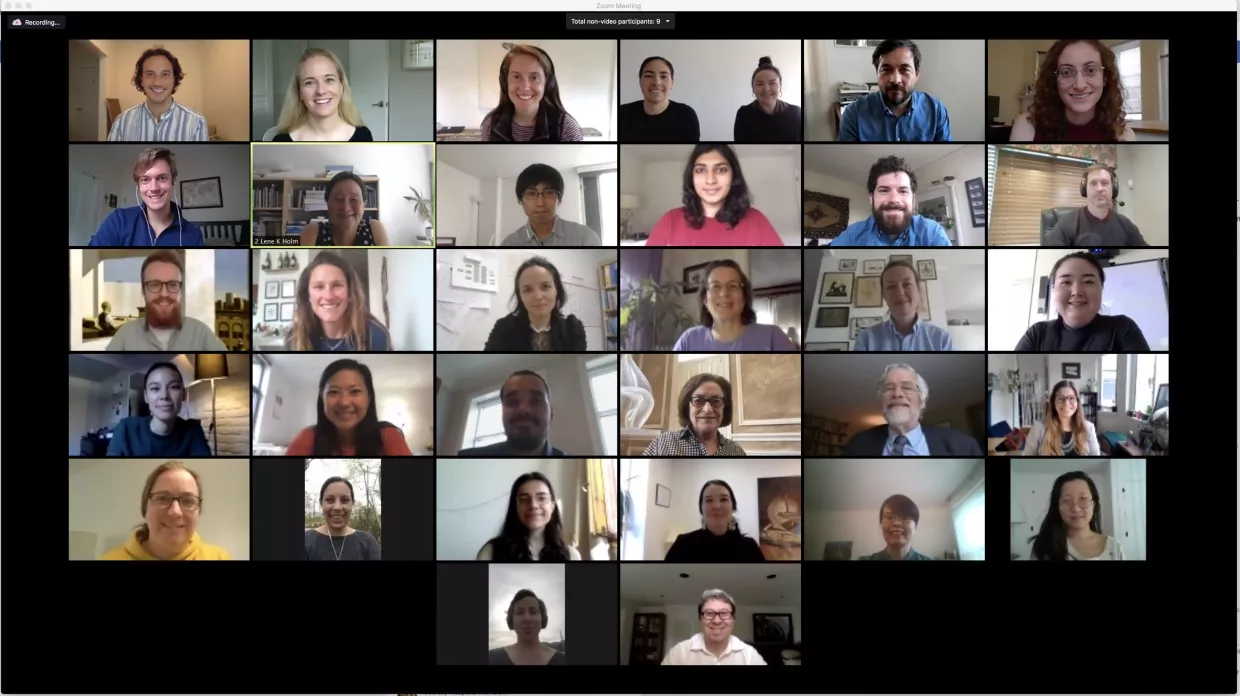Over the course of two days the Greenland Policy Challenge teamed up students from the University Greenland with students from Harvard over Zoom to co-develop recommendations for Greenland's policy strategies in the fields of climate change, education and cultural preservation, foreign affairs and economics and trade. Student groups were paired with expert local Greenlandic mentors who offered guidance along the way.
On the first day students had the opportunity to learn about their subject areas from local Greenlandic experts including: Jørn Skov Nielsen, Greenland's Deputy Minister, Ministry of Industry, Energy, Research and Labour, Lene Kielsen Holm Greenlandic Research Scientist and Project Leader in the Climate and Society Research Group at the Greenland Climate Research Centre, Katti Fredricksen, Head of the Language Secretariat of Greenland and poet, and Inuuteq Holm Olsen, Head of Representation of the Greenland Representation in Washington, D.C.
Then after an afternoon and evening of brainstorming sessions, policy development, and memo writing, students spent the second day presenting their policy solutions to a panel of experts including: University of Greenland Rector, Gitte Adler Reimer; Deputy Foreign Minister of Greenland, Kenneth Høegh; and Teresa and John Heinz Professor of Environmental Policy at the Harvard Kennedy School and Co-Director of the Arctic Initiative, John P. Holdren.
Ideas ranged from encouraging expansion of "green sand" as a sustainable development opportunity, creating an online dashboard to map attractions around Greenland to encourage people to experience Greenlandic culture, investing in hydropower to produce hydrogen fuel as a clean energy source, and creating more technology tools for early childhood language education in Greenlandic. The expert panel critiqued each groups' set of solutions and shared the ways the students presentations helped reshape their thinking about future policy strategies.
At the end of the two days, students shared their thanks for the opportunity to connect from across the globe to build a network of young leaders interested in promoting sustainable development of the Arctic. While digital tools can't replace face-to-face interaction, the Greenland Policy Challenge showed how virtual spaces can still provide a venue for learning, innovation, and new networks to form.


